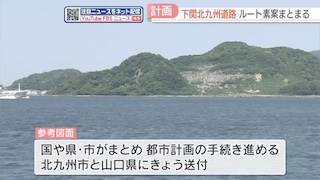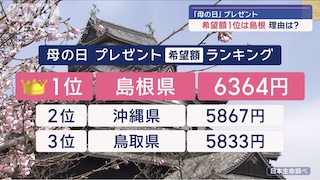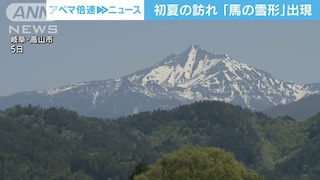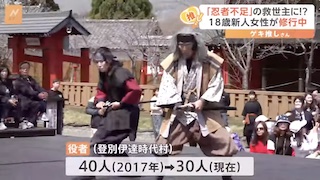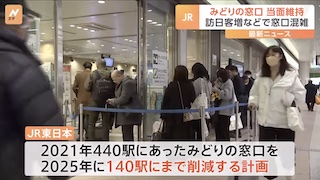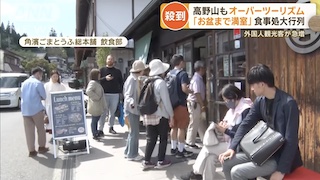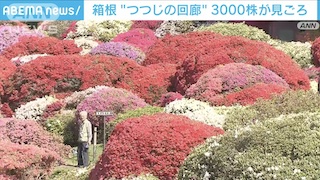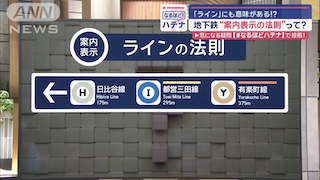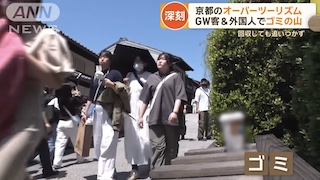TOKYO, Apr 27 (News On Japan) - The start of Golden Week on April 27 saw a surge in departures abroad fueled by the weakest yen level in about 34 years. In northern Japan, regions including Hokkaido, Aomori, and Iwate experienced unseasonably hot temperatures, with highs surpassing 30C.
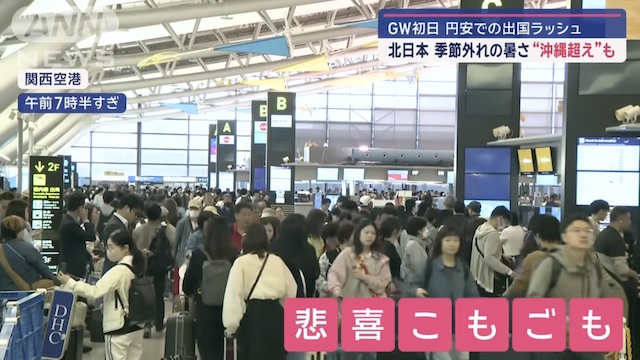
Tourists in Sapporo were taken aback by the summertime heat, with many opting for short sleeves and shaved ice. "Sapporo is experiencing midsummer temperatures," remarked a visitor.
Even hotter conditions were reported in Tohoku, with several areas recording the highest April temperatures in their history. Mito in Aomori Prefecture reached a scorching 31.2°C, marking the earliest summery day on record for the region.
The Golden Week holiday, which can extend up to ten days, is expected to see about 22.8 million people traveling domestically, with the peak day for outbound Shinkansen travel being April 27.
Haneda Airport was so crowded that the floor was scarcely visible, with April 27 also marking the peak of air travel.
At a ranch in Shizuoka, the highlight was sheep shearing, a precaution against heatstroke before summer arrives.
Among those in line, some were dressed in cosplay, slowly making their way to Makuhari Messe. "It's relatively cool outside, but inside, it's extremely hot," one attendee observed.
The massive "Niconico Chokaigi" event was also taking place, featuring live performances by popular artists and various dance acts.
Doujinshi seller Eevee-chan commented, "I took a picture of Sachiko Kobayashi's mannequin dressed up; it's like a festival with Kobayashi as a gal. It’s nice to meet people you only see once a year."
Last year's playtime has made a comeback in some areas, with spring skiing being a popular choice. "Despite closing early last April due to a mild winter and snow shortage, this season's late cold snap has maintained about one meter of snow, allowing us to ski through the entire Golden Week as usual," said a local ski resort representative.
After physical activities, food is essential. In Toyama Prefecture, the Spring Firefly Squid Festival was in full swing, where children tried their hands at squid scooping instead of the usual goldfish, surprisingly finding the squid quite resilient.
The weather on April 28 is forecasted to be perfect for outings across Japan from Hokkaido to Kyushu, with cities like Nagoya and Kyoto expecting the year’s highest temperatures around 30°C.
About 780,000 people are expected to travel overseas from Haneda and Narita airports.
A woman traveling to Guam said, "The clear blue seas of the tropical island of Guam are alluring, but the sharp decline in the yen is troubling. Still, we must seize the chance to travel."
The yen's exchange rate plummeted to about 158 yen to the dollar, a level not seen in 34 years.
A man heading to Seychelles noted, "The rate worsened recently, but we need to go anyway."
A woman traveling to America shared, "I was shocked when I exchanged money; it's so little."
Adapting to the situation, a woman going to Italy mentioned, "We'll save by not eating out every meal, opting to shop at supermarkets instead."
Another woman traveling to Guam added, "I’m bringing 500ml bottles of water and tea since buying them there is expensive."
Amid mixed emotions, a group traveling to Germany and Italy encountered unexpected trouble. "I just came to see them off today because, actually...," one member revealed, "My passport had expired, and I found out just two days ago, so I can't go."
Source: ANN



